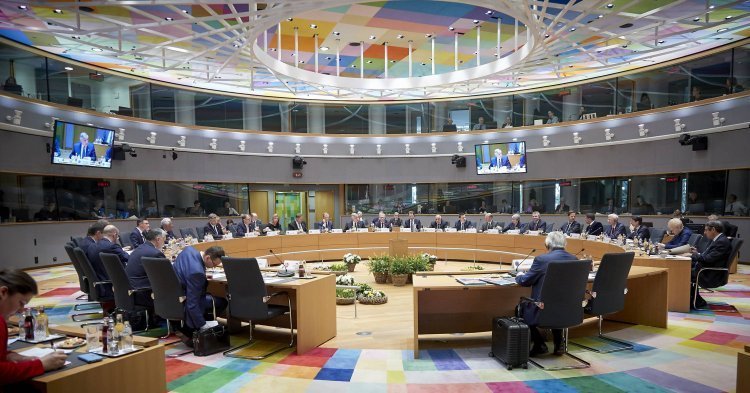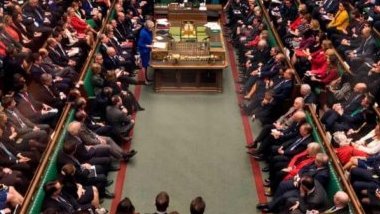John Bercow and the 1604 convention
Back to 1604. A 415-year-old rule of the British Parliament shadowed Theresa May’s perspectives last 18 March. The Prime Minister indeed hoped to organise a new so-called “meaningful vote”, no less than the third one on the Brexit deal and the second within only a few days. But John Bercow, Speaker of the House of Commons, had a different take on this: he refused such a possibility in virtue of this parliamentary convention dating back to 1604.
According to this principle, an identical text cannot be presented to the MPs twice in the same parliamentary session – the ongoing one will end on 4th April 2019 – unless “substantial changes” are brought to it.
Everything thus depends of what is to be understood by “substantial change”. According to Theresa May, in her letter to the European Council President Donal Tusk, the withdrawal agreement will comply with the 1604 principle if the EU-27 approve the Strasbourg instrument. But this instrument was already used to gather the Commons for a second “meaningful vote” on 12 March.
Everything is a matter of interpretation of the 1604 convention claimed by Bercow. The Speaker will be able to consider that the postponing of the Brexit date does not account for a “substantial change” to the text. Then, Theresa May will only be able to rely on the MPs’ will to avoid a no-deal, by approving a third “meaningful vote” to be held, overruling the 1604 text.
“I’m on your side”
Last Wednesday, the European Commission reacted quickly and clearly on Theresa May’s demand for a short extension. The date of 30 June seems to pose legal and political problems in view of the European elections which will take place between 23 and 26 May. If, as this date approaches, the withdrawal agreement is still not signed and if the British government decides to avoid a no-deal Brexit, to revoke Article 50 and to remain in the EU, the British citizens would not have participated to the European elections, thus making the European Parliament illegal.
This is why the European Commission considers that the extension can only be granted up to 22 May, the day before the elections, to avoid such a scenario (Jean-Claude Juncker had already evoked this in Strasbourg).
Yet, the European Council President, Donal Tusk, in a short address, considered that Theresa May’s demand could be granted. This extension would be however conditioned to a positive vote of the British MPs for the withdrawal agreement, a technical extension as explained by France and shared by Spain and Belgium. In such a scenario, the last formalities could be resolved in writing, otherwise Donald Tusk foresees the possible convocation of an extraordinary Summit next week to avoid the no-deal.
On 20 March, the day before the European Council, Theresa May addressed the British people. She claimed to be “on their side”, arguing that she was understanding their fatigue in front of the MPs’ prevarications, thus making the MPs responsible of all this uncertainty. She is thus leaving them three options:
- Voting on her deal, that she considers as the best solution;
- Rejecting her deal and leaving the EU with no deal;
- Not leaving at all and so asking for Article 50 to be revoked.
The Prime Minister herself excluded the option of a longer extension, as this would imply European elections to be held in the UK, which looks politically inconceivable as the “Leave” won in 2016. Similarly, Theresa May is unequivocal on the eventuality of a second referendum: the British people already voted in June 2016, the UK will leave the EU.
But aren’t the British people allowed to have changed their mind? A petition presented on the website of the British Parliament and asking for Article 50 to be revoked reached almost 5 million signatures (as of today), in only a few days. On 23 March, the March for a People’s vote gathered 1 million people in London. In front of such a mobilisation, we can legitimately raise the question.
Farewell 29 March
After long talks, the EU-27 gathered in Brussels finally agreed on a text answering Theresa May’s demand: there will be no extension on 30 June 2019, but a “backstop” system in order to avoid the no-deal. They also approved the documents that were agreed upon in Strasbourg last week, which clarify the interpretation of the withdrawal agreement and more specifically the Irish backstop. These documents specify that the backstop between Northern Ireland and the Republic of Ireland, if it is implemented, will not be indefinitely maintained, should the EU act in bad faith, the UK could unilaterally suspend the backstop. According to Theresa May’s, this interpretation instrument must allow her to present a “new text” which could be positively received by the British MPs, as the question of the Irish backstop and its concrete implementation has been at the core of parliamentary talks since November 2018.
The European proposition is thus divided in three phases:
- An extension to 22 May 2019 will be granted if, and only if, Theresa May manages to have her Brexit deal voted next week.
- If she fails, she will have an extension until 11 April (as 12 April is the deadline to participate to the European elections) to issue new propositions and potentially ask for a long extension. In this event, it also means that the British citizens will take part to the European elections in May 2019.
- If the Prime Minister fails these first two options, then the no-deal will be put on the table again.
The situation is thus not much clearer today, as everything is still possible: leaving for real or not? The ball is now in the British MPs’ court: either accepting the deal negotiated by Theresa May or rejecting it once more. Leaving with no deal or – one can dream – questioning the possibility to remain in the European Union.






Follow the comments: |
|
